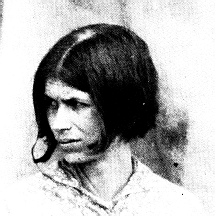Forgetting
Poetry and Prose about
Alzheimer's Disease
Holly J. Hughes, Editor
(Kent State University Press)

Editor Hughes has found a hundred writers to contribute to Beyond Forgetting but one may find oneself in despair after the first dozen or so entries. What more can be said about Alzheimer's more than that it is painful, a terrible loss, tragic, there is nothing to be done?
It's the exceptions that stand out here: Syril Lockhart in "Naked" telling us of her mother's beauty after she has taken off her "dirty, rumpled" clothes, there in the doctor's office, a mother now filled with "grace, a natural innocent composure." Or Donna Wahlert, musing that her mother has no past, and now is "unable to contemplate the future,"
- Here let us sit together
under the weeping beech
here let us talk about milk glass
chifforobes and elderberry wine
here let us soothe your ankles
swollen with childhood memories...
Or there is always the comedy (should we laugh at such tragedy? Is there a choice?) When David Mason's dad says "his feet will soon be trees," the son thinks "he is right, though not in the way / I want to know." M. J. Iuppa's father, "the good doctor,"
- is patient
sitting perfectly still in his chair; thin
arms crossed in his lap with five
of his favorite hats stacked on top
of his head...
And Linda Annas Ferguson's mother: "To her, I'm the mild-mannered woman / who cooks her meals. / She is going to leave me / a tip when she finds her purse."
One thinks, after browsing this woeful volume, that perhaps it would have been kinder to leave the disease with the old name senile dementia. Which is at once more gentle and more poetic than the one taken from the German physician who identified it so long ago, in the long forgotten past, one Alois Alzheimer.